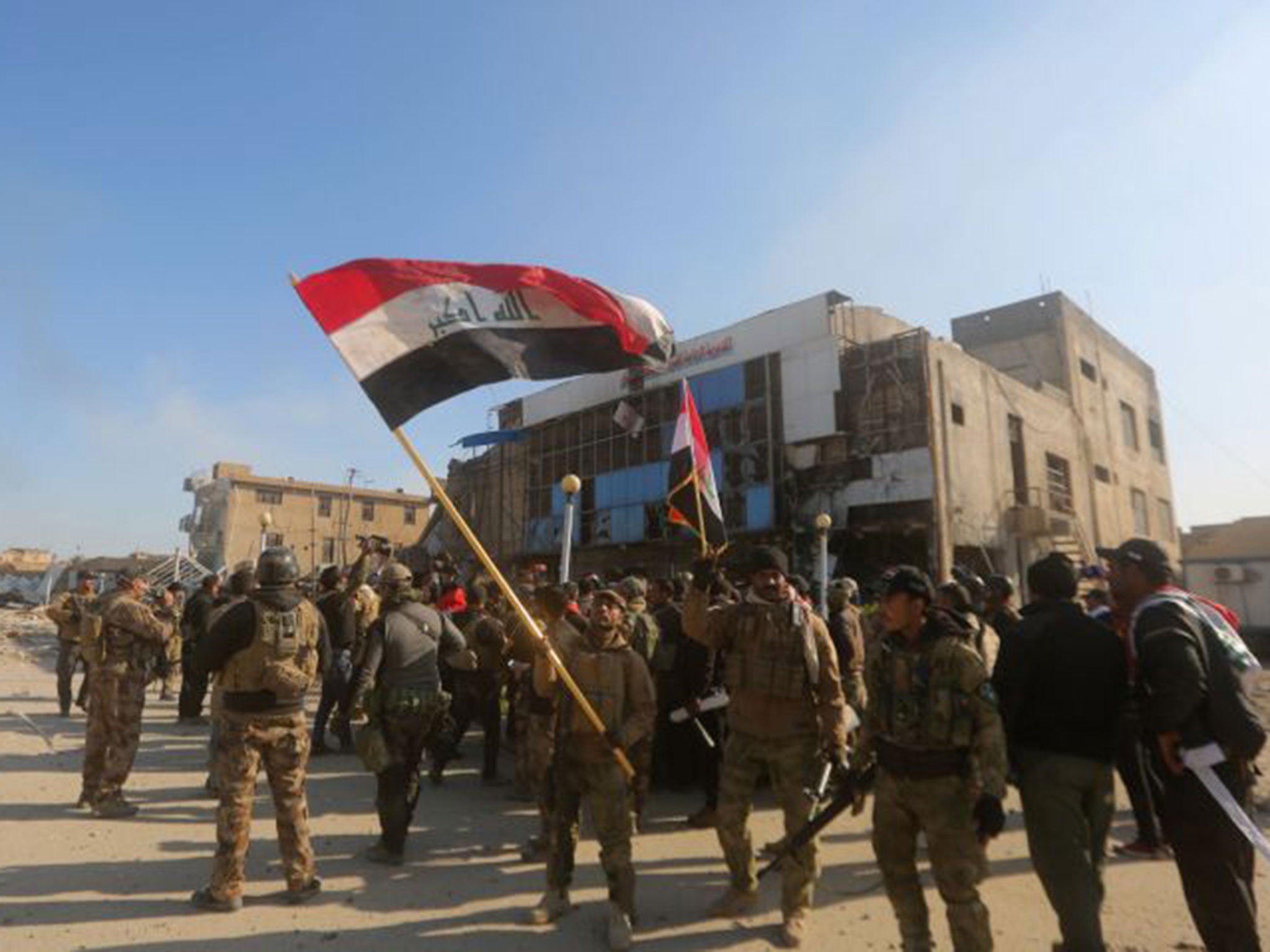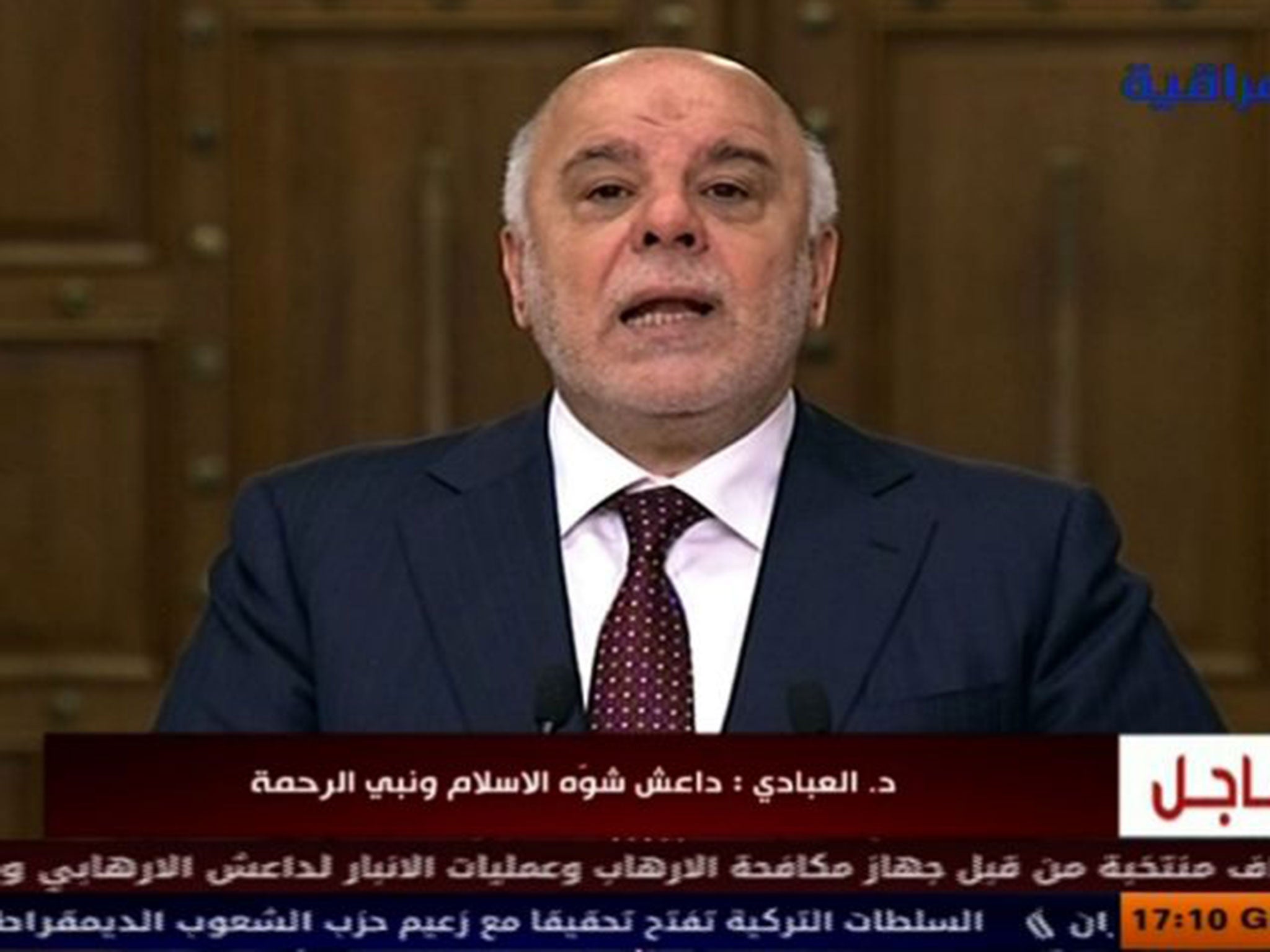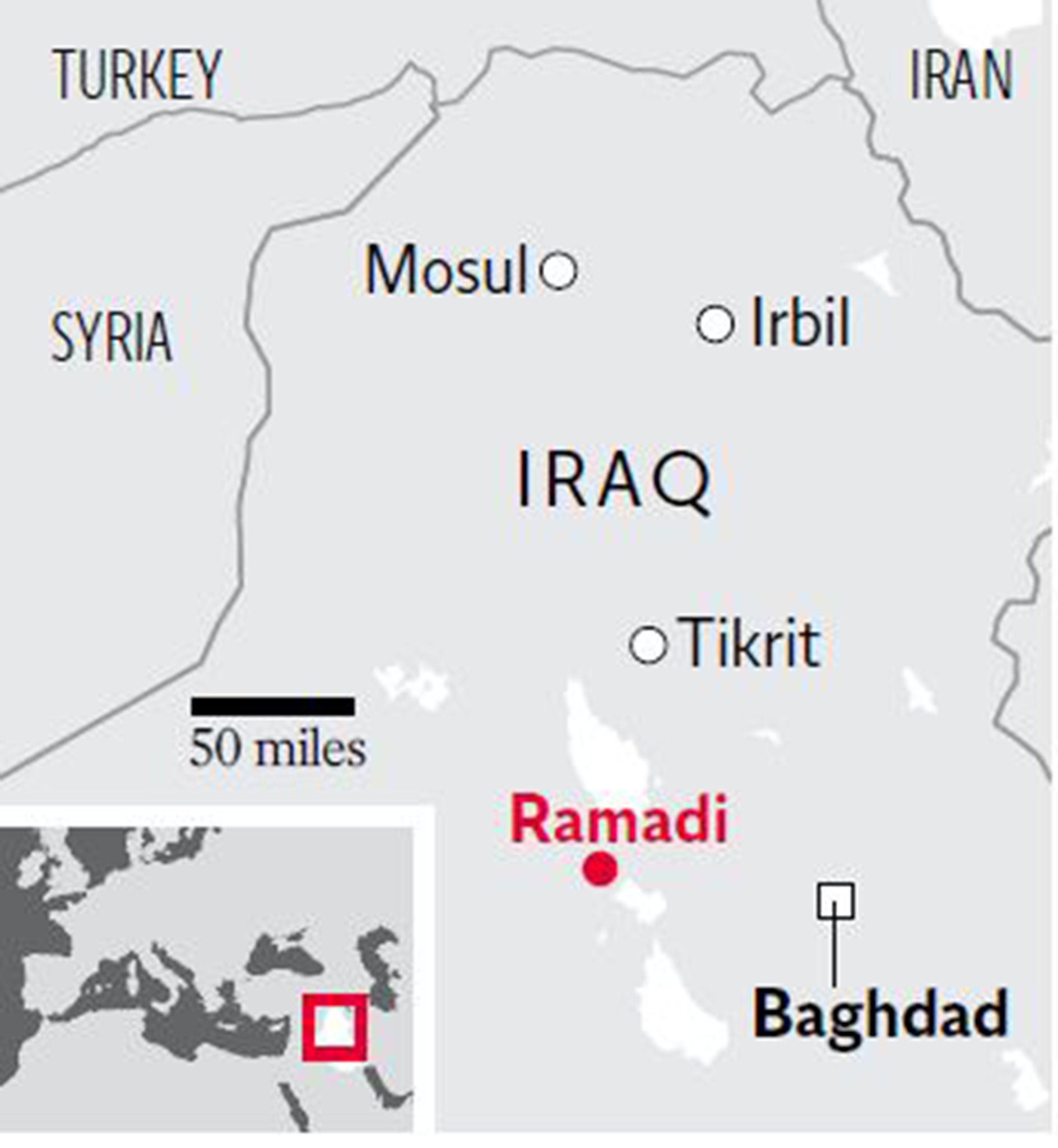Iraq to defeat Isis in 2016, says Prime Minister Haider al-Abadi, as army retakes Ramadi
Al-Abadi victorious as forces secure provincial capital following army's near collapse 18 months ago

Your support helps us to tell the story
From reproductive rights to climate change to Big Tech, The Independent is on the ground when the story is developing. Whether it's investigating the financials of Elon Musk's pro-Trump PAC or producing our latest documentary, 'The A Word', which shines a light on the American women fighting for reproductive rights, we know how important it is to parse out the facts from the messaging.
At such a critical moment in US history, we need reporters on the ground. Your donation allows us to keep sending journalists to speak to both sides of the story.
The Independent is trusted by Americans across the entire political spectrum. And unlike many other quality news outlets, we choose not to lock Americans out of our reporting and analysis with paywalls. We believe quality journalism should be available to everyone, paid for by those who can afford it.
Your support makes all the difference.A triumphant Iraqi Prime Minister Haider al-Abadi today declared that in the coming year his forces will defeat Isis, after his military achieved its first major victory since collapsing in the face of the fighters 18 months ago.
Iraqi forces flew the national flag above the main government complex in Ramadi this morning, declaring they had recaptured the city, a provincial capital west of Baghdad that fell to Isis fighters in May. “2016 will be the year of the big and final victory, when Daesh’s presence in Iraq will be terminated,” Abadi said in a speech broadcast on state television.
“We are coming to liberate Mosul and it will be the fatal and final blow to Daesh,” he added, using an Arabic acronym for Isis that the hardline group rejects. Mosul, northern Iraq’s main city, is by far the largest population centre in the self-proclaimed caliphate Islamic State rules in Iraq and Syria.
The army’s apparent capture of Ramadi, capital of Anbar province in the Euphrates river valley west of Baghdad, marks a major milestone for the US-trained force that crumbled when Isis fighters charged into Iraq in June 2014. In previous battles since then, Iraq’s armed forces operated mainly in a supporting role beside Iranian-backed Shia militias.
Soldiers were shown on state television publicly slaughtering a sheep in an act of celebration.
Gunshots and an explosion could be heard as a state TV reporter interviewed other soldiers celebrating the victory with their automatic weapons held in the air. US Army Colonel Steve Warren, a spokesman for a US-led coalition backing Iraqi forces, said in a statement: “The clearance of the government centre is a significant accomplishment and is the result of many months of hard work.”

He said the coalition had provided more than 630 air strikes in the area over the past six months as well as training, advice and equipment to the army, counter-terrorism forces and police.
The US-led coalition, which includes major European and Arab powers, has been waging an air campaign against Isis positions in both Iraq and Syria since a third of Iraqi territory fell to the fighters in mid-2014.

The Iraqi army was humiliated in that advance, abandoning city after city and leaving fleets of American armoured vehicles and other weapons in the fighters’ hands. One of the main challenges of the conflict since then has been rebuilding Iraq’s army into a force capable of capturing and holding territory.
Baghdad has said for months that it would prove its forces’ rebuilt capability by rolling back militant advances in Anbar, a mainly Sunni province encompassing the fertile Euphrates river valley from Baghdad’s outskirts to the Syrian border.
After encircling the provincial capital for weeks, Iraqi forces launched an assault to retake it last week and made a final push to seize the central administration complex on Sunday. Their progress had been slowed by explosives planted in streets and booby-trapped buildings.
Security officials said the forces still need to clear some pockets of insurgents in the city and its outskirts.
Authorities gave no immediate death toll from the battle for the city. They have said most residents were evacuated before the assault.
Finance Minister Hoshiyar Zebari said the capture of Ramadi was “a done deal” but said the government had to do more to rebuild the city and encourage displaced people to return.
“The most important thing is to secure it [Ramadi] because Daesh can bounce back,” he said.
Iraq’s army took the lead in the battle for Ramadi, with the Shia militias prominent in other campaigns held back from the battlefield to avoid antagonising the mainly Sunni population. Washington had also expressed reluctance about being seen as fighting alongside the Iranian-backed groups.
Mr Abadi took office in September 2014 after the Isis advance, pledging to reconcile Iraq’s warring sectarian communities.
Reuters
Join our commenting forum
Join thought-provoking conversations, follow other Independent readers and see their replies
Comments